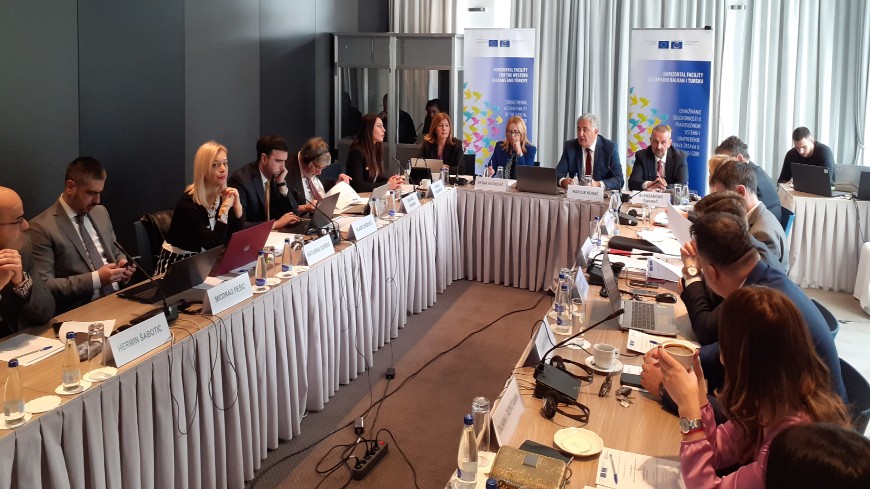Montenegro initiated the revision of the Law on Judicial Council and Judges in 2019, with the aim to further strengthen judicial independence, accountability and efficiency, but also to address the issues arising in the practical implementation of this regulation, as noted in the European Commission’s reports on Montenegro and the Venice Commission’s opinions in 2022 and 2023. Recently, the impetus for reform has become even more urgent in light of an intensified EU accession dynamic, focusing on addressing interim benchmarks in Chapter 23.
With the involvement of broad justice sector stakeholders, the process of drafting the amendments to the Law on Judicial Council and Judges advanced. The action "Strengthening accountability of the judicial system and enhancing protection of victims' rights in Montenegro" which is part of the joint European Union and Council of Europe programme “Horizontal Facility for the Western Balkans and Türkiye”, provides support to the new Working group established in December 2023, by facilitating alignment with Venice Commission’s recommendations and Council of Europe standards. The work of the Working group is informed by the perspectives gained through discussions and exchange of know-how with the Council of Europe experts/members of the Consultative Council of European Judges (CCJE).
At the opening of the joint meeting held on 29 February/1 March in Budva, Radoje Korać, Judicial Council’s president stressed out the need for strengthening the Council’s independence and “reaching a delicate balance between judges’ rights and responsibilities”.
Vesna Vučković, the Acting Supreme Court President stated that the quality of legal framework is crucial for enabling efficient, accountable and user-centered justice pathways.
“The process of adoption of the judicial laws is an important step towards the on-going justice sector reform and a significant impetus for the EU accession process”, stated Elena Jovanovska Brezoska, Head of Southeast Europe Unit in the Council of Europe Co-operation Programmes Division.
Lejla Dervišagić, Head of Council of Europe Programme Office in Podgorica expressed gratitude to the European Union for a continued engagement and co-operation in judicial reform.
“The Ministry of Justice will keep playing its role in facilitating co-ordination with judicial actors to ensure that quality legal framework is in place”, concluded Aleksandar Bakrač, State Secretary in the Ministry of Justice of Montenegro.
The meeting resulted in a consolidated version of the amendments which will be further reviewed by the Working group.



